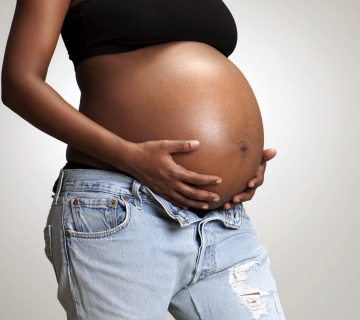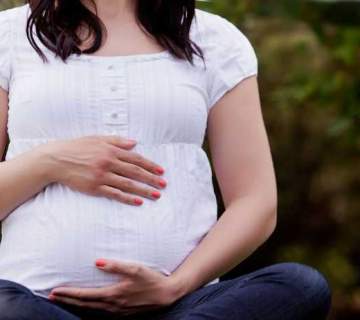
Can Someone with Blocked Fallopian Tubes Menstruate?
If you’ve ever wondered whether blocked fallopian tubes stop your period, you’re not alone. It’s a question that pops up a lot, especially for women trying to understand their bodies or facing fertility challenges. The short answer? Yes, you can still menstruate even if your fallopian tubes are blocked. But there’s so much more to unpack here—how does this work? What does it mean for your health? And what else should you know?
In this article, we’ll dive deep into the topic. We’ll explain why your period keeps showing up, explore how blocked fallopian tubes affect your body, and clear up myths you might have heard. Plus, we’ll share practical tips, the latest research, and insights that go beyond what you’ll find in most articles. Whether you’re curious, concerned, or just want to learn, we’ve got you covered with clear, friendly info you can trust.
What Are Blocked Fallopian Tubes and Menstruation?
Let’s start with the basics so we’re all on the same page.
Blocked Fallopian Tubes: A Quick Rundown
Your fallopian tubes are two thin tubes that connect your ovaries (where eggs are made) to your uterus (where a baby grows during pregnancy). Picture them as tiny highways for eggs and sperm to meet up. When these tubes get blocked—by scar tissue, infections, or other issues—the egg can’t travel to the uterus. This is a big deal for getting pregnant naturally, but does it stop your period? Not quite.
Menstruation: Why You Bleed Every Month
Your period happens when your body sheds the lining of your uterus. This lining builds up each month to prepare for a possible pregnancy. If no pregnancy happens, hormones tell your uterus to let it go, and that’s when you see menstrual blood. It’s all driven by hormones like estrogen and progesterone, which come from your ovaries—not the fallopian tubes.
The Big Question: Can You Still Have a Period?
Yes! Blocked fallopian tubes don’t stop your ovaries from making hormones or your uterus from doing its monthly cleanup. Your period keeps coming because it’s about the uterus and hormones, not the tubes. Think of it like this: If a road is closed, cars can still move around the city—they just can’t take that one route. Your menstrual cycle works the same way.
How the Menstrual Cycle Works (and Why Blocked Tubes Don’t Stop It)
To really get why blocked fallopian tubes don’t mess with your period, let’s break down the menstrual cycle. It’s like a monthly dance your body does, and hormones are the choreographers.
The Four Phases of Your Cycle
-
- Menstrual Phase (Days 1-5)
This is when you’re bleeding. The uterus sheds its lining because there’s no baby on board. Hormones are low, signaling the start of a fresh cycle.
- Menstrual Phase (Days 1-5)
-
- Follicular Phase (Days 1-13)
While you’re still bleeding, your ovaries are busy growing follicles—tiny sacs with eggs inside. These follicles pump out estrogen, which rebuilds the uterine lining.
- Follicular Phase (Days 1-13)
-
- Ovulation (Day 14)
Mid-cycle, a spike in hormones releases an egg from one ovary. Normally, the egg slides into the fallopian tube, hoping to meet sperm. If the tube’s blocked, the egg can’t go anywhere—but that’s a fertility issue, not a menstruation one.
- Ovulation (Day 14)
-
- Luteal Phase (Days 15-28)
After the egg pops out, the empty follicle turns into something called the corpus luteum. It makes progesterone to thicken the uterine lining even more. If no pregnancy happens, hormone levels drop, and the lining sheds—hello, next period!
- Luteal Phase (Days 15-28)
Why Blocked Tubes Don’t Matter Here
The fallopian tubes are just a pathway for the egg and sperm. They don’t control the hormones or the uterine lining. So, even if they’re blocked, your ovaries keep making hormones, and your uterus keeps shedding. A 2021 study from the Journal of Reproductive Medicine backs this up, showing that women with blocked tubes had normal menstrual cycles unless other conditions were at play.
Orion Nightingale, MD, Reproductive Endocrinologist:
“The menstrual cycle is a hormonal orchestra, and the fallopian tubes are more like stagehands—they’re not playing the music.”
Symptoms of Blocked Fallopian Tubes
Here’s the tricky part: Blocked fallopian tubes can be sneaky. Most women don’t even know they have them until they try to get pregnant. But there are some signs to watch for.
What You Might Notice
-
- Pelvic Pain: Some women feel mild pain, especially during their period or ovulation. It’s not always a red flag, but it’s worth noting.
-
- Pain During Sex: Discomfort that’s new or unusual could hint at tubal issues.
-
- Weird Discharge: If an infection caused the blockage, you might see abnormal vaginal discharge.
-
- Nothing at All: Seriously, many women have zero symptoms—that’s why it’s often called a “silent condition.”
How It’s Usually Found
Most people find out about blocked tubes when they can’t conceive after a year of trying (or six months if you’re over 35). Doctors then step in with tests to figure out what’s up.
✔️ Tip: If you’ve had pelvic infections, surgery, or endometriosis, mention it to your doctor—they increase your risk of blocked tubes.
How Doctors Diagnose Blocked Fallopian Tubes
Wondering how they check your tubes? Here’s what you might go through.
Common Tests
-
- Hysterosalpingogram (HSG)
-
- What It Is: An X-ray where dye is injected into your uterus.
-
- How It Works: If the dye flows through the tubes and spills out, they’re open. If it stops, there’s a block.
-
- Pros: Quick and non-invasive.
-
- Cons: Can be uncomfortable (think mild cramps).
-
- Hysterosalpingogram (HSG)
-
- Ultrasound (Sonohysterogram)
-
- What It Is: Uses sound waves and saline to peek inside.
-
- How It Works: Shows blockages or abnormalities.
-
- Pros: No radiation involved.
-
- Cons: Less detailed than HSG for tubes.
-
- Ultrasound (Sonohysterogram)
-
- Laparoscopy
-
- What It Is: A tiny camera goes into your belly through a small cut.
-
- How It Works: Doctors see the tubes up close.
-
- Pros: Super accurate.
-
- Cons: It’s surgery, so there’s recovery time.
-
- Laparoscopy
What to Expect
These tests might sound intimidating, but they’re pretty routine. HSG, for example, takes about 15 minutes, and you’re back to normal in a day. A 2022 study in Fertility and Sterility found HSG caught 85% of tubal blockages—pretty reliable!
❌ Don’t Panic: A diagnosis doesn’t mean your period stops—it’s about fertility, not menstruation.
Blocked Fallopian Tubes and Fertility: What’s the Connection?
Okay, so your period’s fine—but what about having a baby? Here’s where blocked tubes throw a curveball.
Why It’s a Problem
The fallopian tubes are where sperm and egg hook up. If they’re blocked:
-
- One Tube Blocked: You’ve still got a shot with the other tube.
-
- Both Tubes Blocked: Natural pregnancy can’t happen without help.
Fertility Fixes
Don’t lose hope—there are options:
-
- Surgery: Doctors can sometimes clear the blockage with tools like a catheter or laparoscopy. Success depends on the damage.
-
- IVF (In Vitro Fertilization): Eggs are taken out, fertilized in a lab, and placed in your uterus—no tubes needed. IVF success rates for tubal issues hover around 35-40% per cycle, per the CDC’s 2023 data.
✔️ Action Step: See a fertility specialist if you’re trying to conceive and suspect blocked tubes. Timing matters!
Busting Myths About Blocked Fallopian Tubes and Periods
There’s a lot of confusion out there. Let’s set the record straight.
Myth #1: Blocked Tubes Mean No Period
Truth: Nope! Your period comes from your uterus shedding, not the tubes. Blockages don’t stop that.
Myth #2: Periods Get Weird with Blocked Tubes
Truth: Usually, no. A 2020 study in Human Reproduction found no link between tubal blockages and irregular cycles—unless something else (like endometriosis) is involved.
Myth #3: Heavy Periods = Blocked Tubes
Truth: Flow depends on your uterine lining, not the tubes. Heavy bleeding? Check with your doctor—it’s likely something else.
Ophelia, Gynecologist:
“I see patients worry their heavy periods mean blocked tubes, but those are separate issues. It’s all about digging deeper.”
Treatment Options for Blocked Fallopian Tubes
If blocked tubes are cramping your fertility plans, here’s what you can do.
Surgical Solutions
| Treatment | What It Does | Good For | Risks |
|---|---|---|---|
| Tubal Cannulation | Clears blockages with a catheter | Blocks near the uterus | Minor bleeding, failure |
| Laparoscopy | Removes scar tissue or blockages | Moderate damage | Infection, recovery time |
| Salpingectomy | Removes a damaged tube | Severe damage, hydrosalpinx | Surgery risks |
Non-Surgical Help
-
- IVF: Skips the tubes entirely. Best for severe cases.
-
- IUI (Intrauterine Insemination): Boosts sperm to the open tube if only one is blocked.
Does Treatment Affect Your Period?
Not really. Surgery might cause temporary spotting, but your cycle should bounce back fast. Hormones from fertility treatments (like IVF) can tweak timing, but that’s short-term.
✔️ Pro Tip: Ask your doctor about success rates for your specific blockage—location and cause matter.
What Causes Blocked Fallopian Tubes?
Understanding the “why” can help you prevent or spot issues early.
Common Culprits
-
- Pelvic Inflammatory Disease (PID): Infections like chlamydia or gonorrhea can scar tubes.
-
- Endometriosis: Tissue growing outside the uterus can clog things up.
-
- Past Surgeries: Scar tissue from C-sections or appendectomies can block tubes.
-
- Hydrosalpinx: A tube fills with fluid, often from infection.
Prevention Tips
-
- Safe Sex: Use protection to avoid STDs that lead to PID.
-
- Regular Checkups: Catch infections early.
-
- Know Your History: Past pelvic issues? Tell your doctor.
A 2023 study in The Lancet found PID causes 30% of tubal blockages—early treatment could’ve prevented many.
Living with Blocked Fallopian Tubes
So, your tubes are blocked—what now?
Emotional Side
It’s normal to feel frustrated or sad, especially if you want kids. Talk to friends, a counselor, or online communities—you’re not alone.
Health Check-ins
Even if your period’s fine, keep up with gynecologist visits. Blocked tubes can signal other issues (like endometriosis) worth watching.
✔️ Self-Care: Track your cycle with an app to spot anything unusual early.
Latest Research on Blocked Fallopian Tubes
Science is always moving forward. Here’s what’s new in 2023:
-
- Stem Cell Hope: Early trials suggest stem cells might repair damaged tubes—still experimental, but exciting! (Stem Cell Reports)
-
- Better Imaging: New ultrasound tech spots blockages with 90% accuracy, cutting need for invasive tests.
-
- Link to Gut Health: Some studies hint gut bacteria might play a role in inflammation leading to blockages—more research needed.
Caspian Sterling, Fertility Researcher:
“We’re on the cusp of breakthroughs that could change how we treat tubal issues—stay tuned.”
Conclusion: Your Period, Your Power
Here’s the takeaway: Blocked fallopian tubes don’t stop your period. Your cycle keeps rolling because it’s all about hormones and your uterus, not those tiny tubes. They might make baby-making harder, but they don’t define your health or worth.
If you’re worried about blocked tubes—or just curious—talk to your doctor. Get the tests, ask the questions, and take charge. Knowledge is your superpower, and we’re here to help you use it.
Let’s Chat!
Have you dealt with blocked fallopian tubes? What’s your biggest question or tip to share? Drop it in the comments—we’d love to hear from you and keep this convo going!


No comment